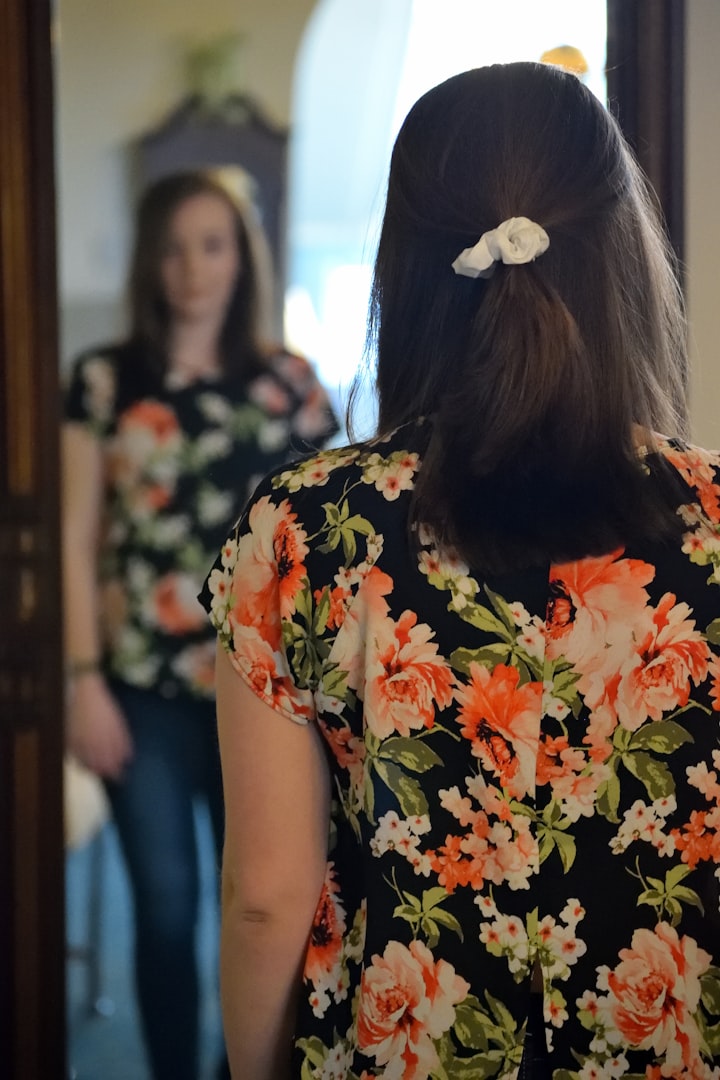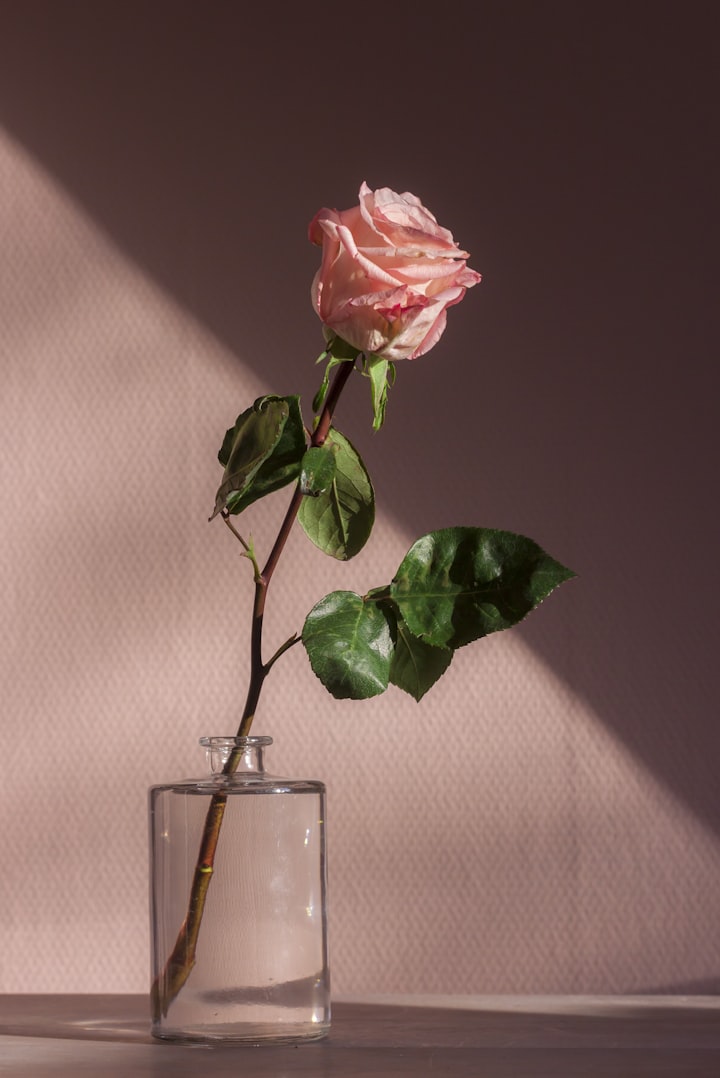The Problems with Self-Objectification
Frizzy hair? Fat butt? Not enough dates? Similar questions discount our bodies as an intrinsic gift.

I sometimes felt ugly when a few males would make fun of me or not like me. To alleviate these feelings, I tried to change my dress or mannerisms. I objectified my body and felt self-conscious. I noticed other girls did the same, and that stays the same today. Today I know males feel this way too.
Here I address several common areas of self-objectification.
Hair
I dressed or did my hair according to what I thought males might like. I grew my hair out because males seemed to notice the girls with longer hair. However, I often chopped my long hair because I like frequent change (still do). With shorter hair, I sometimes felt less beautiful.
Like L.M. Montgomery's Anne Shirley, I sometimes wished for a different hair color because a few boys teased me about my red hair. For example, several boys called me "coppertop" (almost like Gilbert Blythe's "carrots"). Other times, I felt unique and noticed as a redhead. Occasionally too noticed. One man with a creepy redhead fetish talked excessively to my ex-sister-in-law and me at group events.
In large part, the blondes, brunettes, and black hair seemed the most beautiful. After watching Chris Rock's documentary Good Hair, I see black men and women struggle with a dislike for their frizzy hair. Some spend thousands to feel more beautiful. I lament that Black women or men anywhere feel less beautiful because of their hair color or texture. Or less employable. I hope women and men love their natural hair and flaunt what God gave them.
Do you keep your hair a certain way to attract others?
Makeup
I put on makeup occasionally to attract guys. Plus, my eyelashes and eyebrows are blonde, so they are hard to see. People complimented me more when I wore makeup, so I understand why some women feel the need to wear makeup to feel beautiful for themselves. For me, makeup has been for fun, for a costume; but for some women, it is a mask body image problems.
Women, we are beautiful with our natural skin showing. Makeup is a tool to emphasize what beauty we already possess. By the way, I love seeing models who flaunt their unique skin "imperfections".
Hourglass Figure
I noticed that boys paid more attention to girls who showed more skin. Those girls tended to have boyfriends or receive more compliments - even from morally conservative males. It hurt. For more male attention, I showed as much skin as permitted within the Latter-day Saint modesty guidelines. "Hottest is modest" and "Keep it long enough, but short enough to be interesting" pervaded my thinking. I let my beauty be in the eye of the beholder, and I sometimes forgot my commitment to modesty was about showing love for my body and toward the Giver.
Society and males emphasized the hourglass shape and large breasts. I noticed that many of the girls boys liked had medium to large breasts - but not too large. As a B cup in my teens, I wore padded bras or halter-top bras to enlarge the appearance of my breasts or to create cleavage. I didn't always accept my breast size didn't matter. From 20–22, I finally had medium-sized breasts. I was so excited that I felt males would surely notice. But that was short-lived as I gained extra weight. My larger breasts hurt when wearing a bra for long periods of time. (Hence why some women need breast reduction surgery.)
Like other women, I've thought about elective surgery to achieve an hourglass look, but then I see what it has done to some women. Breast implants becoming dislodged, CoolSculpting causing Paradoxical Adipose Hyperplasia (PAH), liposuction complications. I wonder if "natural" breast enhancement will bring future woes too. Obviously, many others struggle with this too. Otherwise, elective plastic surgery wouldn't thrive.
Surprisingly, I never realized others objectifying our bodies displayed that person's disrespect. Thus, not my problem.
Do you ever wish your body shape were different? How do you deal with these thoughts?
Body Size
I sometimes equate my weight with my beauty. In my teen years, my body stayed thin until my twenties. Later, my body slowed down because of the extra fat I gained. I am now morbidly obese. My husband may say I am beautiful now, but I don't always feel that way. I sometimes feel like a fat blob. Now I recognize that I and many others struggle with body dysmorphia. I also have had binge eating disorder on and off since age 26. Many others suffer from other eating disorders trying to regain a sense of control. I pray no one else will suffer from such psychological and physical distress.
Being morbidly obese, I have considered weight loss surgery (not as a cure to binge eating). Many have chosen weight-loss surgeries to address their obesity. For some males and females, it has helped reduce weight, yet it comes at a cost. One friend deals with terrible pain if she drinks soda. Do you want to give up soda? Each time I have pondered weight loss surgery, I feel a pit in my stomach. My intuition tells me to steer clear. Still, you may receive different answers.
Several years ago, I came across the Kite sisters' More than a Body blog. Their mantra "My body is an instrument, not an ornament" empowered me to remember my body can do so many amazing things no matter its size.
The analogy also helps me put taking care of my body into perspective. I don't need a certain body type or weight. I need my body to function properly, and my body is not functioning properly where I am at now. I want to live without diabetes; I want to bend over again. So, I need to care for my body better one small goal at a time. The focus is health, not weight.
How does the above quote change your perspective about your body?
A New Focus
Our bodies are God-given. Thus, they are beautiful for their intrinsic value, even with their flaws. For each flaw, we have other perfections. Honestly, the imperfections make us imperfectly perfect.
I am thankful for my body because I can gaze at the stars, chase after my sons, hug those I love. When I focus on enjoying my body instead of objectifying it, I can enjoy these physical experiences more. Isn't that better than counting the flaws?
Instead, let's count the ways our bodies benefit us. What do you enjoy because of your body?
For more of my musings, subscribe, follow me on Twitter @oeileend_oed or Facebook, or check out my blog. If you can, consider pledging or leaving a tip too. Thanks!






Comments
There are no comments for this story
Be the first to respond and start the conversation.